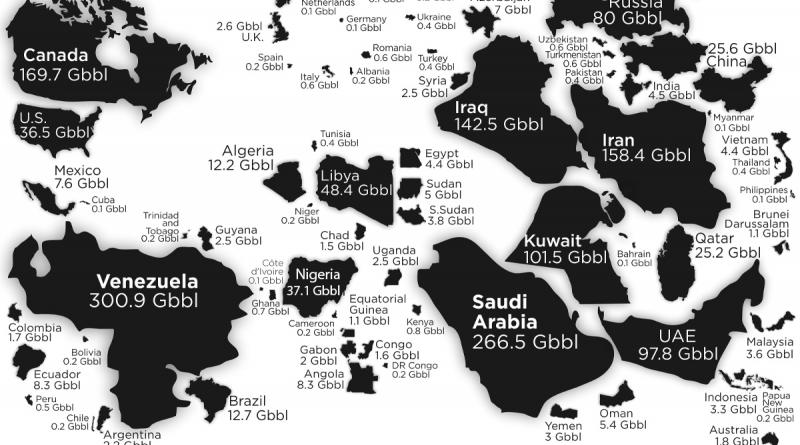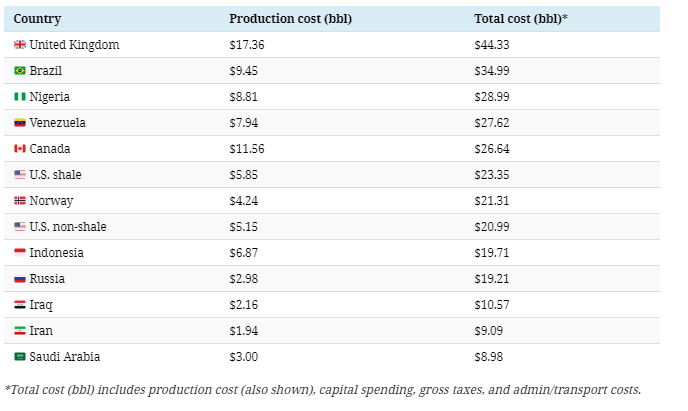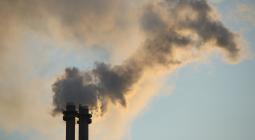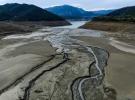The Countries With the Most Oil Reserves

Map: The Countries With the Most Oil Reserves
There’s little doubt that renewable energy sources will play a strategic role in powering the global economy of the future.
But for now, crude oil is still the undisputed heavyweight champion of the energy world.
In 2018, we consumed more oil than any prior year in history – about 99.3 million barrels per day on a global basis. This number is projected to rise again in 2019 to 100.8 million barrels per day.
The Most Oil Reserves by Country
Given that oil will continue to be dominant in the energy mix for the short and medium term, which countries hold the most oil reserves?
Today’s map comes from HowMuch.net and it uses data from the CIA World Factbook to resize countries based on the amount of oil reserves they hold.
Here’s the data for the top 15 countries below:

Venezuela tops the list with 300.9 billion barrels of oil in reserve – but even this vast wealth in natural resources has not been enough to save the country from its recent economic and humanitarian crisis.
Saudi Arabia, a country known for its oil dominance, takes the #2 spot with 266.5 billion barrels of oil. Meanwhile, Canada and the U.S. are found at the #3 (169.7 billion bbls) and the #11 (36.5 billion bbls) spots respectively.
The Cost of Production
While having an endowment of billions of barrels of oil within your borders can be a strategic gift from mother nature, it’s worth mentioning that reserves are just one factor in assessing the potential value of this crucial resource.
In Saudi Arabia, for example, the production cost of oil is roughly $3.00 per barrel, which makes black gold strategic to produce at almost any possible price.
Other countries are not so lucky:

Even if a country is blessed with some of the most oil reserves in the world, it may not be able to produce and sell that oil to maximize the potential benefit.
Countries like Canada and Venezuela are hindered by geology – in these places, the majority of oil is extra heavy crude or bitumen (oil sands), and these types of oil are simply more difficult and costly to extract.
In other places, obstacles are are self-imposed. In some countries, like Brazil and the U.S., there are higher taxes on oil production, which raises the total cost per barrel.
25 Μarch 2019







